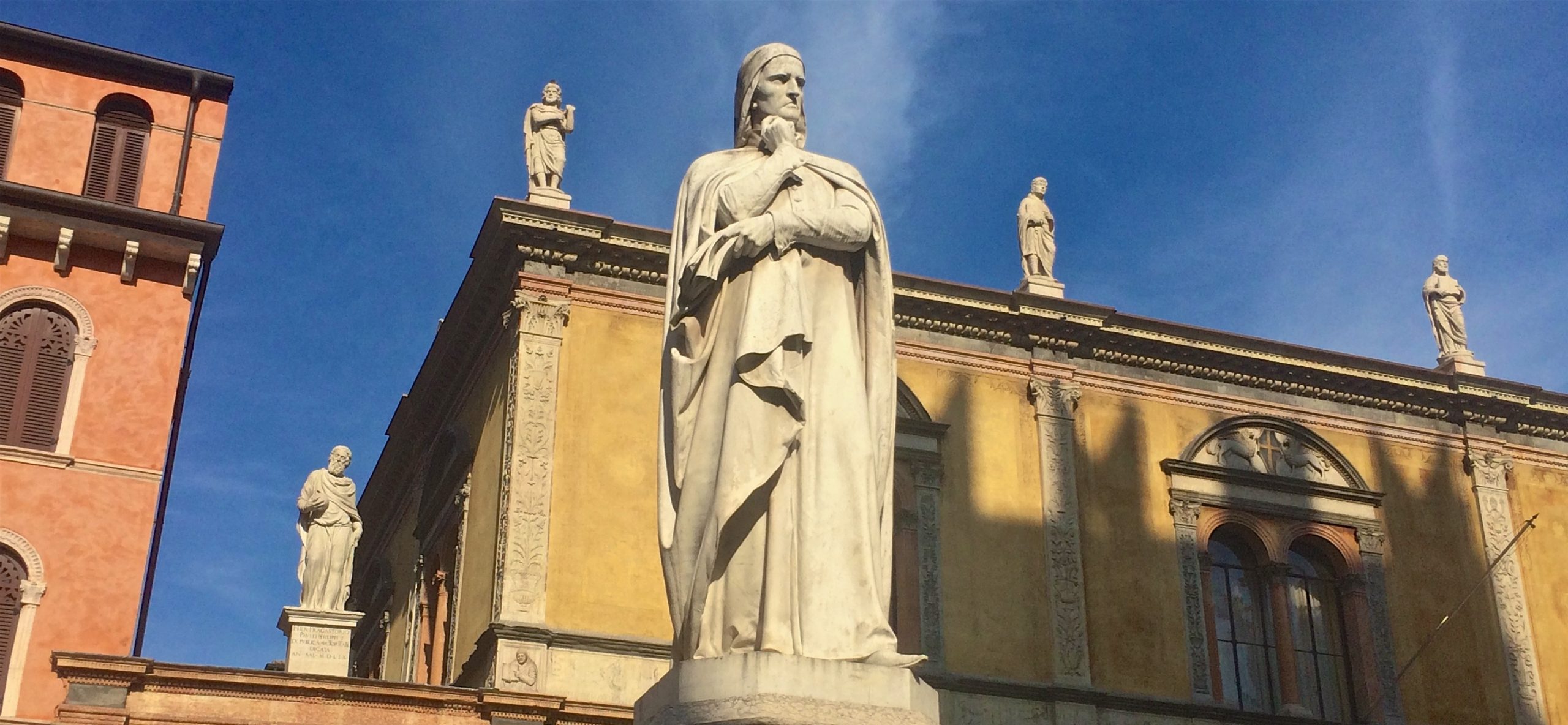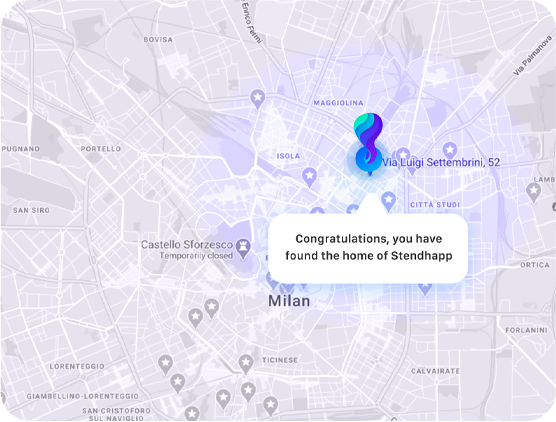Verona dedicated a square to Dante. No, you won’t find it in the classical toponymy, where the place we are talking about is rubricated as “Piazza dei Signori”, but ask any Veronese: he will tell you that this is Piazza Dante, because it is dominated by the statue of the supreme Alighieri placed right in its middle.
The square in Verona dedicated to Dante
From there the author of the Divine Comedy looks at us all haughty and severe, holding his work with one hand, supporting the other arm with a finger on his chin, while he turns his head absorbed in deep thoughts, so dark that they seem to poison his expression. The statue was erected in 1863, to celebrate the sixth centenary of Alighieri’s birth, and one could say that the particular posture in which Dante was portrayed was a stylistic choice, inspired to the sculptor Ivo Zannoni by the so-called “dramatic” line celebrated by Raphael in the Stanza della Segnatura in the Vatican. But perhaps there is something else…
When Dante lived in Verona
Strangely enough, in the official texts, there is little mention of Dante’s stay in Verona. Yet he resided there from 1312 to 1319, writing part of the Divine Comedy in which there are many references to the city. In reality his was a return, as he had already been a guest of the Scaligeri family under the rule of Bartolomeo in the early years of the 1300s.
It should also be remembered that the Paradise, largely written during his stay in Verona, was expressly dedicated to Cangrande della Scala, the most famous of the exponents of the Scaligeri lordship; and that the terrible gate to Hell described by Dante bears many signs of the very peculiar dark, bronze portal of the basilica of San Zeno, the patron saint of the city. Among other things, some of Dante’s heirs, the Serego Alighieri, still live in the Scaligera city, producing excellent wine.
Why, then, all this deafening silence on the relationship between Dante and Verona and why, if there had been so much intimacy, that gloomy, almost violent expression represented on Dante’s face in the statue dedicated to him in the heart of the city?
Dante contemporary of Romeo and Juliet
Perhaps a predictive sign is given by the fact that Dante lived in Verona in the very years in which Shakespeare set “Juliet and Romeo”, so much so that he spoke of it in the Divine Comedy: “Come and see Montecchi and Cappelletti, Monaldi and Filippeschi, men without care, those already sad, and these with suspicion (Purgatory VI, vv.106-108). Dante lived in Verona during the years of the Capulets and the Montecchi, of great loves and great tragedies, but in truth he, too, suffered a great drama in his heart: because the city of Romeo and Juliet, after having seduced, welcomed and hosted him, in the end even deceived him, letting him think that he might be accompanied until his death, perhaps making it sweeter. But this was not the case.
Why Dante left Verona
In fact, there is a last fatal and painful return of Alighieri within the Scaliger walls, which few people know. In 1320 Dante is once again in Verona where on a cold and snowy evening, on 7 January, in the church of Sant’Elena, he reads to the canons and men of culture of Verona his famous Quaestio de aqua et terra, hoping to win admission to teaching in the Studio (the high school of Verona that was becoming a renowned university). But, at the end of the audition, to him was mysteriously preferred the master of logic Artemisio and Dante continued his wanderings until his death the following year in Ravenna.
On the pedestal of the monument celebrating the author of the Divine Comedy, in that Piazza dei Signori that the Veronese know as Piazza Dante, we can read “A Dante lo suo primo rifugio” (to Dante from hi first refuge). First but not least you could say … but the Veronese people know about this discourtesy.
It is not by chance that the motivation of the choice of Zannoni’s project, who at the time only twenty-nine years old, instead of any other more important and well-known sculptor of the time, reads: “he rendered the true concept of the greatness and fearfulness of that great man and portrayed him as He should be in Verona, meditating on the past, nobly saddened by his destinies and even more so by those of his homeland”.
Photo credit: Waldo93





